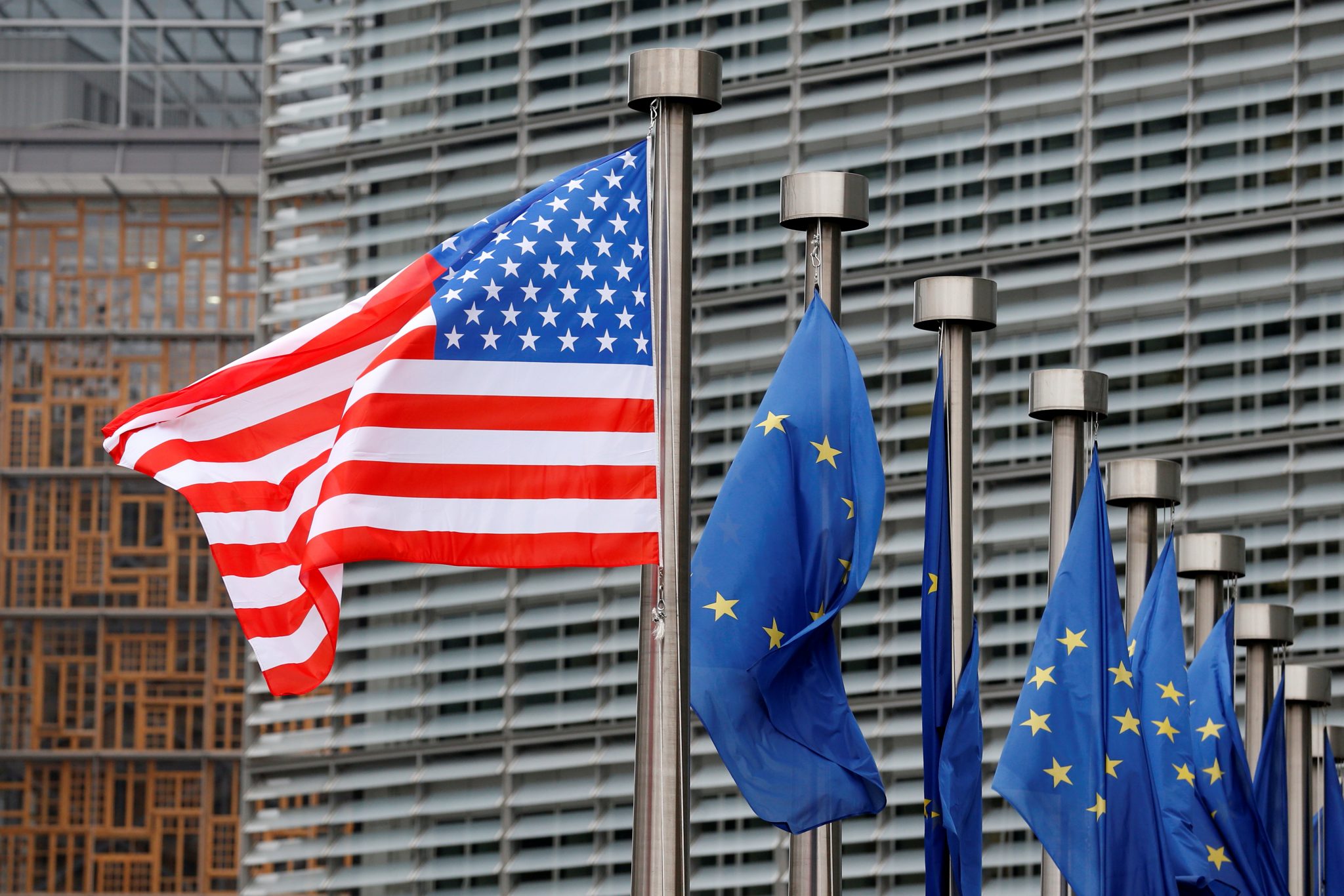
[authorbox authorid=”47″ title=”The Author”]
[toggler title=”DISCLAIMER” ]All opinions in this column reflect view of the autor(s), not of Vocal Europe.[/toggler]
Migration—mass movements of the desperate and the dispossessed from north and central Africa, from Syria-Iraq’s wars, from the subcontinent—is both Europe’s biggest problem and its most misunderstood. Angela Merkel’s reelection only underscores this point.
When nearly one million Syrians sought shelter within the borders of the European Union in 2015, two things became clear to German officials: they couldn’t say with certainty where the asylum seekers really came FROM or if refugees had registered under different names for the sake of getting financial aid multiple times.
Adding to the confusion, people other than those from the war-torn Syria had posed as Syrian refugees, throwing away their passports while en route to Europe. Only later, with the help translators and natives from Syria, the German government was able to distinguish between legitimate refugees to be protected under the Geneva Convention and economic migrants.
As the migration crisis continues—and it is a crisis because even Europe’s vast wealth cannot feed and house the many millions who seek to come indefinetly—it is now painfully obvious that the old answers no longer suffice. New policies are needed for this new age.
[button color=”red” size=”normal” alignment=”none” rel=”follow” openin=”samewindow” url=”https://www.vocaleurope.eu/?s=migration”]Curious For More?[/button]
As European Union governments grope for solutions, some suggest doing the same old things in new places. They suggest building migration centers in North Africa to house the refugees in place and deter smugglers, who take the travelers few remaining valuables in payment for dangerous trip in leaky raft. This idea is controversial both in Europe and in Africa, albeit for different reasons. Europeans fear the centers would become inhumane slums while African government fear that they would become bases for crime and sedition. Yet, even if this highly controversial measure could be applied, the central problems remain: how to ensure the identity of migrants and to avoid double or triple counting?
Still others suggest blocking all asylum seekers for some time. This is as realistic as holding back the sea, as Canute tried. Perhaps it is time for Europe to look across the Atlantic at Canada and the U.S., where different migration solutions have been tried.
Canada admits migrants according a point system, rewarding education, work experience and investment income. As a result, it has attracted some of the best educated and wealthiest people in the world, including Hong Kong Chinese, Indians and South Africans. By contrast, Europe evaluates asylum seekers based on their suffering, attracting those who have endured torture and persecution. In theory, Europe’s way rights the world’s wrongs. In reality, Canada’s migrants create jobs and pay taxes while Europe’s tend to consume more services.
In the U.S., despite its president’s talk of walls and deportations, other new approaches have sprung up. Consider that, on any given day, the U.S. is housing some 400,000 illegal migrants in grim detention centers ringed with chain-link fences. Each detainee costs the U.S. government more than $100 per day to shelter, feed, clothe, clean, treat and guard. Most could legally be released if they could post a bond, ranging between $5,000 and $50,000, but they have no assets and no income so the bond remains a polite fiction.
Now two Verona, Virginia-based entrepreneurs, Mike Donovan and Richard Moore, are changing that cruel reality. Their company, Libre by Nexus, contracts with bail bonds outfits to post the bonds for the migrants. When they are released, a Nexus staffer, who speaks their language, picks them up and takes them to a restaurant. Over their first non-institutional meal in months or years, the Nexus official explains that the company has borrowed money to underwrite their bonds and that they need to wear a tracking device, a small GPS device that wraps around an ankle, so that they can’t disappear.
Nexus sends a car to carry them to all of their government-ordered hearings and legal meetings. For these services, Nexus charges a $14 daily rental fee for the GPS device. Nexus does not set the amount of the bonds, federal judges do. Nexus usually recovers the bond fee when the migrant meets each of his legal obligations; in other cases, the migrant repays the bond separately from the rental charge. Nexus maintains a 24-hour call center, staffed with speakers of Spanish, Portuguese, French and several African languages, to assist migrants in their transition to living in the U.S.
The benefits are dramatic. Currently, Nexus has freed and tracked more than 12,500 people—saving the federal government more than $100 million. The social benefits are even bigger. Thousands of families have been reunited, allowing children to grow up with their parents beside them, not jailed awaiting a distant hearing that could send them out of the country and out of their lives. On average, children with fathers present tend to avoid gangs, crime, drugs and teen pregnancies. Once freed, virtually all Nexus clients find legitimate jobs, adding to the economy as they navigate the immigration bureaucracy.
Still, there are critics. Human-rights groups say Nexus is taking unethical advantage of the migrants’ despair and that the GPS tracker is humiliating stigmata.
“What’s the alternative?” asks Nexus CEO Mike Donovan, “a dangerous and dirty prison cell? What do the critics want, to let these people suffer in chains and never see their children grow up?” Besides, no court or government official has ordered any migrant to hire Nexus; each of its customers are voluntary. Most Nexuscustomers have no trouble explaining the GPS tracker to co-workers without embarrassment. Indeed, most ofNexus customers come through word-of-mouth.
Donovan, himself a former prisoner, says he designed his start-up on the basis of his own unhappy experiences with the prison industry. He understands firsthand the pain and frustration of incarceration as well as the joy of freedom, even with an ankle bracelet. One Nexus client, a Spanish-speaking pastor, said he would “gladly wear ten bracelets to avoid one more day in prison.”
Whatever the technological or legal solution, Europe must move beyond its outdated immigration model. The new reality demands a new solution.



